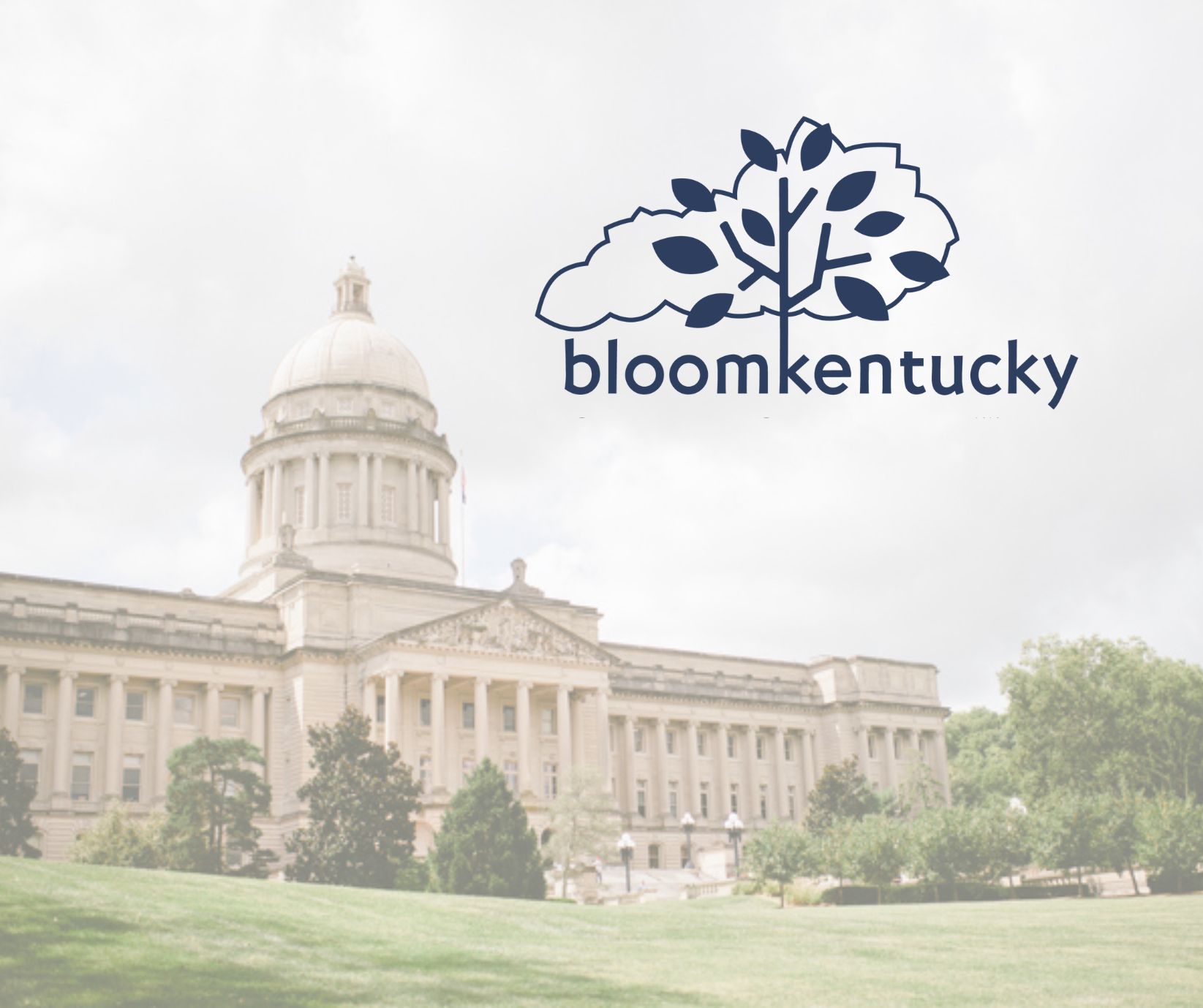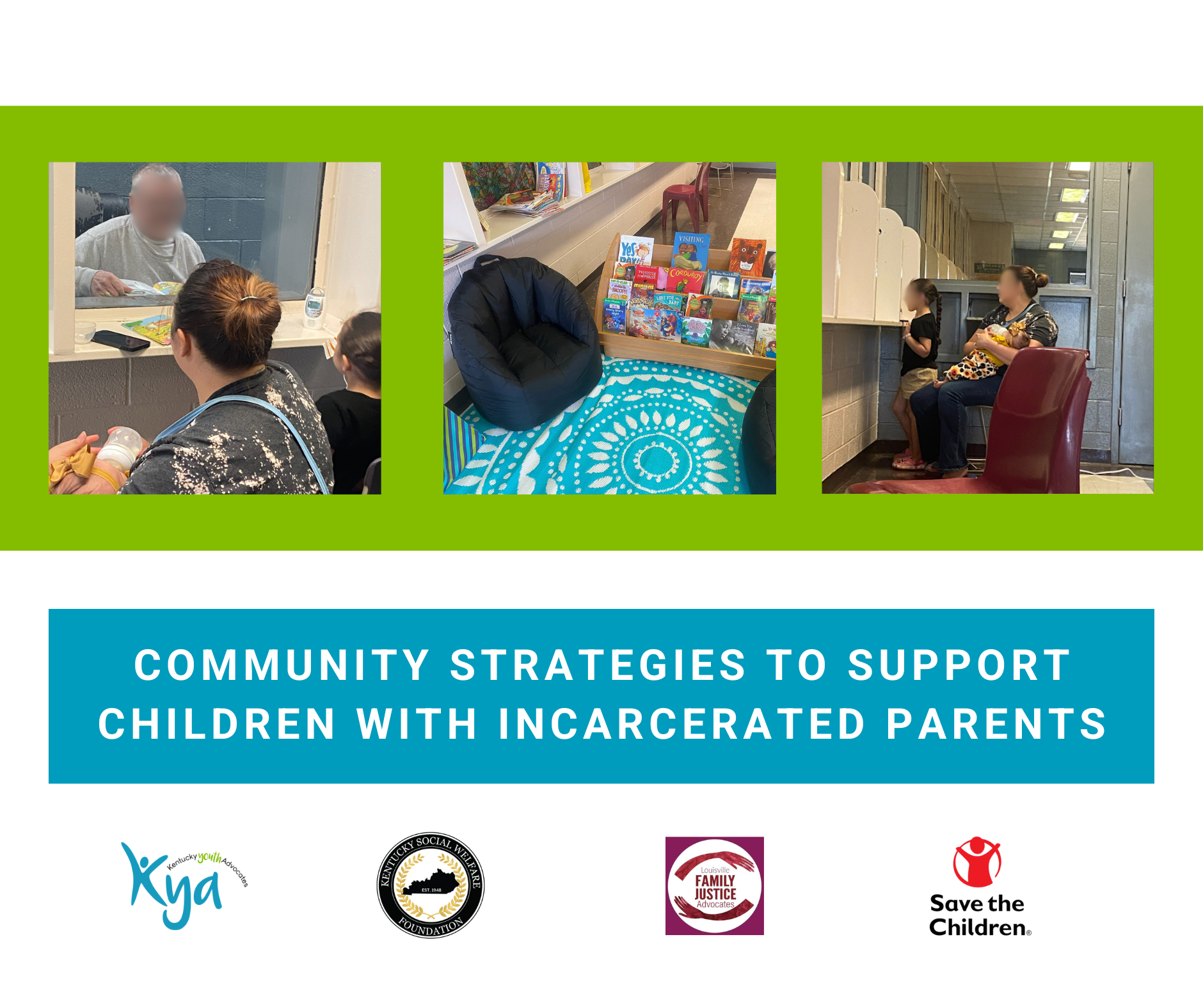It has been a busy couple of weeks for the U.S. Congress! Lawmakers in Washington, D.C. have crafted a bevy of legislation that impacts Kentucky’s kids and their families.
Late last week Congress passed and the President signed into law two pieces of legislation in response to the COVID-19 pandemic.
- The Families First Coronavirus Response Act, which provides free Coronavirus testing, paid sick leave, unemployment aid, and nutrition assistance.
- The Coronavirus Aid, Relief, and Economic Security (CARES) Act, which is an approximately $2 trillion COVID-19 relief package that includes thousands of dollars in direct relief funding to most Americans, a $367 billion loan program for small businesses, a roughly $500 billion loan fund for large corporations, and critical support to health services.
How will Kentucky’s children and families be impacted by the federal government’s COVID-19 response legislation?
Here is what Kentucky families can expect to receive from the federal government’s efforts to protect families, serve children, and stop the spread of COVID-19 in Kentucky and across the nation:
How will my family’s health coverage be impacted?
- Eliminates cost sharing for Coronavirus testing to help low-income, rural, and urban Medicaid, Children’s Health Insurance Program (CHIP), and uninsured families. This follows Governor Beshear’s action taken earlier this month.
- Freezes Medicaid disenrollment as of March 18, 2020, or anyone who newly enrolls until after the national emergency declaration has been lifted.
- Extends coverage for pregnant women beyond 60 days postpartum.
- Authorizes funding for community health centers through the end of the year.
- Reauthorizes rural grant programs through rural community health centers.
- Strengthens the utilization of telehealth services. This follows Kentucky’s Department of Medicaid’s action taken earlier this month.
To apply for Medicaid benefits, click here or contact the DCBS Call Center toll free at (855) 306-8959. For application assistance, click here.
How will my family’s nutrition assistance be impacted?
The Families First Coronavirus Response Act provides roughly $1 billion for meals to needy families. About half of that funding will go to participants in the Supplemental Nutrition Program for Women, Infants, and Children (WIC) in the form of waivers and/or grants. Extra resources are also available via an emergency food assistance program that will continue until Fall 2021. Additional nutrition resources include:
- Increased nutrition assistance if a child’s school has been closed for 5 or more consecutive days. The United States Department of Agriculture (USDA) approved Kentucky’s waiver to be able to serve meals to students during Non-Traditional Instruction (NTI).
- Waivers to expand access to Supplemental Nutrition Assistance Program (SNAP) benefits.
- A suspension of the SNAP program’s work requirements.
To apply for nutrition assistance, click here or contact the DCBS Family Support Call Center at 855-306-8959. To find a site distributing food for your child operated by their local school district, click here.
How will my child’s access to child care be impacted?
Under the CARES Act, Kentucky will receive an additional $65 million in Child Care Development Block Grant (CCDBG) funding. These funds may be used to:
- Provide child care assistance to health care employees and other essential workers, without regard to income levels.
- Provide funding to child care providers who had not previously received subsidies for the cleaning and sanitation of centers in order to reopen them at the appropriate time.
- Provide assistance to child care centers closed during the pandemic to assure that they are able to re-open at the appropriate time.
- Kentucky will be able to pay for the Child Care Assistance Program (CCAP) based on enrollment and not on attendance during the course of this crisis. This means that if a center has a child receiving CCAP who is currently enrolled in their program, then the program will be able to receive CCAP for that child regardless if the program is open or closed.
- Kentucky’s Division of Child Care will also be covering the cost of CCAP parent co-pays during this crisis to avoid putting additional financial burden on the families.
If you are a child care provider with questions regarding CCAP billing, please email CCAP billing staff at CCAPProviderPayments@ky.gov.
If you are a healthcare worker or other emergency personnel in need of child care, you may check with your employer regarding child care access at a Limited Duration Center (LDC) in your area, or call the Division of Regulated Child Care at 502-564-7962. Click here for additional information pertaining to Limited Duration Centers.
How will my child’s access to education be impacted?
The CARES Act invests over $30 billion into a flexible education stabilization fund.
- This will assist states, school districts, and colleges or universities in overcoming the increased cost of online instruction and other barriers caused by the pandemic.
- Head Start will receive $750 million for COVID-19 related needs.
For more information regarding Kentucky’s public schools and COVID-19, click here.
How will my family’s finances be impacted?
– Funding sent directly to your family:
Kentuckians who have used direct deposit to receive tax refunds from the IRS can expect a COVID-19 relief check to be deposited relatively quickly into their bank accounts. Others can expect a longer delay with their checks arriving in the mail sometime between late April through September.
But, not every Kentucky family can expect the same amount, or depending on your family’s income level, a check at all. Here are the details:
-
- Single Kentuckians will receive up to $1,200.
- Married Kentuckians will receive up to $2,400.
- These funds come with an additional $500 per child.
The funding is available for individuals earning less than $75,000 and begins to phase out for those earning more, and is unavailable for those earning $99,000 or more. The funding is available for married couples (those filing taxes jointly) earning less than $150,000 and begins to phase out for those earning more, and is unavailable for those earning $198,000 or more.
– Paid Sick Leave:
Businesses with fewer than 500 employees can provide up to 2 weeks of paid sick leave, if employees:
-
- Are in quarantine or under isolation.
- Are experiencing COVID-19 related symptoms.
- Are caring for someone under quarantine or isolation.
- Are caring for children whose schools and/or child care centers are closed due to COVID – 19.
Families are also provided with up to 3 months of paid family and medical leave.
– Unemployment Insurance:
Expanded unemployment insurance includes:
-
- Extended eligibility.
- An additional $600 per month on top of what Kentucky provides. This continues to the end of July 2020.
- An additional 13 weeks of support beyond what the state typically allows.
- These provisions also apply to gig economy workers, independent contractors, and the self-employed.
To apply for unemployment insurance, click here.
– Student Loan Payments & Federally-backed Mortgage Loans
The CARES Act suspends payments on federally held student loans until September 30, 2020. The act also includes forbearance on mortgage loans, but only those that are federally-backed.
– Retirement Accounts:
Kentuckians can withdraw from their 401(k) and/or IRA accounts without having to pay the 10% early withdrawal penalty fee. This applies to amounts up to $100,000 for COVID-19 related purposes.
How will my small business or place of employment be impacted?
– Small Businesses:
A small business is defined as a for-profit or nonprofit business that employs less than 500 workers.
- The Payroll Protection Program (PPP) package for small businesses is designed to permit workers to stay home during the COVID-19 outbreak, but stay on their company’s payroll.
- Companies that keep their workers on during the pandemic can receive up to 8 weeks of loan assistance.
- If companies hold on to their workers, the loans are forgiven by the federal government.
- PPP Loans can also be used for expenses like company utilities, rent, and/or mortgage payments.
- The small business loans are available on a first come, first serve basis. Not all who apply may be served. The application window begins on April 3rd. So, apply quickly!
- Small businesses can also apply to an Economic Injury Disaster (EIDL) Loan. Small businesses can request an advance of up to $10,000 to help maintain payroll and make rent or mortgage payments during temporary closures or losses in revenue. Funds will be disbursed within three days of a successful application and will not have to be repaid.
- EIDL applications are currently being accepted here.
- If programs receive an EIDL cash advance and a PPP loan, the amount forgiven will be reduced by the value of the cash advance.
For additional resources, click here to learn more from the U.S. Small Business Administration.
It is important to note that the loan program is also available to Kentucky’s child care small businesses impacted by COVID – 19. If you are a child care provider seeking additional information, click here and here.
– Large Corporations:
A large corporation is defined as having more than 500 employees. Loans given to large corporations cannot exceed more than 5 years and will not be forgiven.
The CARES Act and Families First Coronavirus Response Act are designed to secure children and their families, rescue workers, and protect our overall economy and personal well-being from the chaos unleashed by the COVID-19 pandemic. But, remember that there are small actions that our local families can also take to “flatten the curve” and defeat the virus. We urge you to continue staying at home when possible, to practice social distancing when you are around others, and to keep practicing good hygiene.
Together we will defeat this virus and reclaim our future. Stay healthy, Kentucky!






How will special education students be impacted? I read that there is a waiver of protections for them.
Thanks for reaching out. Per the Kentucky Department of Education (KDE), local districts using Kentucky’s NTI program must ensure that students with disabilities have equal access to the opportunities that students in the general education population do during NTI instruction. For a list of Frequently Asked Questions and additional information concerning the rights of special needs students, please reference this page from KDE’s website (https://education.ky.gov/specialed/Pages/OSEELCommunicationandResources.aspx) or contact KDE’s Office of Special Education and Early Learning at (502) 564-9850 Ext. 4121.
Can a company deny unemployment if you are not able to return to work due to having no childcare
Will parents who have no option but to pause their career to stay home for NTI be allowed to claim unemployment? I’m not able to do my job from home or work evenings/nights.
“… if a center has a child receiving CCAP who is currently enrolled in their program, then the program will be able to receive CCAP for that child regardless if the program is open or closed.” Does this apply to centers that are not licensed? Or must a center be licensed to receive CCAP payments?
Child care centers must be licensed. If it’s a family child care home, they are “certified.” A family, friend or neighbor caregiver can be “regulated,” which means that they adhere to VERY minimal health and safety standards in order to be able to receive CCAP.
Check out this recent blog post on ensuring child care is safe for your kids: https://kyyouth.org/looking-for-child-care-make-sure-its-good-for-your-kids/
You may also want to contact a local CCR&R’s who can help answer your questions: https://www.childcareaware.org/resources/ccrr-search-form/